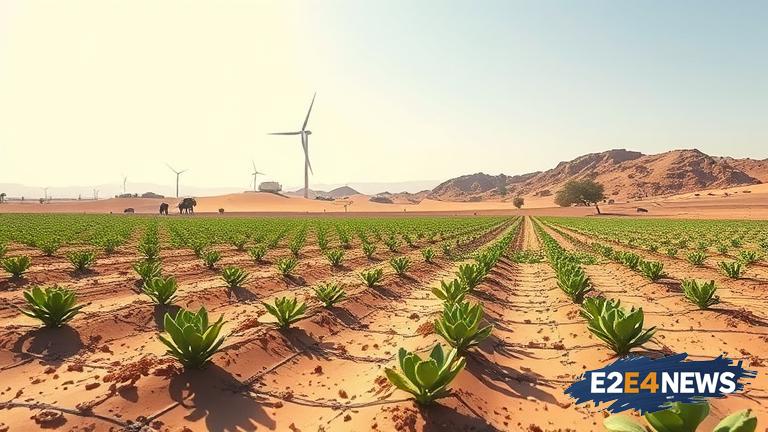Israel has long been a pioneer in agricultural innovation, and its latest endeavors in desert farming are no exception. The country’s agricultural sector has been working tirelessly to develop and implement new techniques to increase crop yields and promote sustainable farming practices in the desert regions. One of the key methods being employed is the use of advanced irrigation systems, which enable farmers to conserve water and reduce waste. Additionally, Israeli farmers are utilizing specialized crops that are resistant to drought and can thrive in the harsh desert conditions. These crops include a variety of fruits and vegetables, such as tomatoes, cucumbers, and bell peppers. The use of greenhouses is also becoming increasingly popular, as they provide a controlled environment for crops to grow and can help to extend the growing season. Furthermore, Israeli researchers are exploring the potential of vertical farming, which involves growing crops in vertically stacked layers, often in indoor environments. This method can help to increase yields while minimizing the use of land and water. The Israeli government has also launched initiatives to support desert farming, including the provision of funding and resources for farmers and researchers. These efforts are aimed at promoting sustainable agriculture and reducing the country’s reliance on imported produce. As a result of these innovative techniques, Israel’s agricultural sector is experiencing significant growth, with exports of fresh produce increasing by over 10% in the past year. The country’s desert farming industry is also creating new opportunities for employment and economic development in rural areas. Moreover, the use of advanced technologies, such as drones and satellite imaging, is helping farmers to monitor and manage their crops more effectively. This includes detecting early signs of disease and pests, as well as optimizing irrigation and fertilization schedules. The integration of artificial intelligence and machine learning algorithms is also being explored, which can help to predict crop yields and identify areas for improvement. Overall, Israel’s desert farming initiatives are a testament to the country’s commitment to innovation and sustainability. By embracing new technologies and techniques, Israeli farmers are able to produce high-quality crops while minimizing their environmental impact. As the global demand for sustainable and locally sourced produce continues to grow, Israel’s desert farming industry is well-positioned to meet this demand and become a leader in the international market. The country’s expertise in agricultural innovation is also being shared with other nations, with Israeli companies and researchers collaborating with international partners to develop and implement new farming techniques. This knowledge transfer is helping to promote sustainable agriculture and improve food security in regions around the world. In conclusion, Israel’s desert farming initiatives are a remarkable example of the country’s innovative spirit and commitment to sustainability. By leveraging advanced technologies and techniques, Israeli farmers are able to produce high-quality crops in the harsh desert environment, while also promoting economic development and reducing their environmental footprint. As the world continues to grapple with the challenges of climate change and food security, Israel’s desert farming industry is an important model for sustainable agriculture and a testament to the power of innovation and collaboration.
